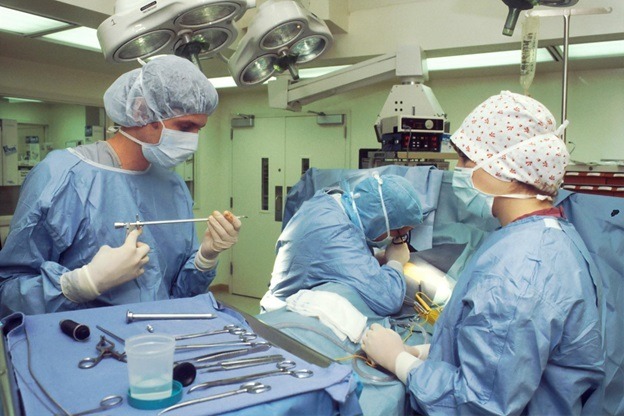The end of medical school marks the start of residency, but only for successful applicants. Demand is high, yet slots are few. The competitive environment requires a convincing application to stand out.
If you want a positive result, take the process seriously, learn from the mistakes and triumphs of others, and seek the wisdom of experts.
For example, Dr. Michael Everest of Residents Medical Group has been helping medical students get coveted slots for years. He shares the following tips to improve your chances of success in residency applications:
1. Know the Difference Between Applications
One of the biggest mistakes you can make is to think that medical school and residency applications are the same. Both are educational, but the purpose, approach, and requirements diverge.
Be aware of their differences so that you can act accordingly. Medical school gets you started toward becoming a doctor, and medical residency is the next step. People expect you to have a higher degree of dedication to the profession. Convince the residency program directors that you are mature enough to handle the load and contribute to the field.
Residents Medical Group is eager to help residents with this process as it may be new and unfamiliar, but having an expert to help walk you through it makes the application process a breeze.
2. Start with the End in Mind
Don’t wait for your last year before considering residency. It should be in your mind from the moment you enter medical school. If you are already in the middle of it, start now.
Every experience will help you decide what to pursue later. Every lesson, event, and individual can guide your path. You can make deliberate choices instead of floating aimlessly without a goal.
If you are not as prepared as you would like to be, Residents Medical Group can help. They have multiple resources to help medical students match with residency programs and offer many application tips and tricks on their social media pages.
3. Foster Program Connections
You do not have to take up residency where you went to medical school, but it is one of your best options. After all, it is where you will spend most of your time over the next few years.
Get feedback from current residents to gauge suitability and meet the people in charge of the various residency programs. Make a great impression by presenting yourself as a diligent and reliable student; you will have an edge in the selection process.
4. Treat Rotations as Auditions
Your rotations are opportunities to show up and be counted. Program directors will be interested in seeing how hard you work and how well you fit into their system.
A good performance might earn an interview for a residency slot. If you are aiming for a residency program at another institution, use rotations to get more letters of recommendation. Satisfied supervising physicians are happy to send one your way.
Residents Medical Group advises applicants to always be at their best when on rotations, in classes, or networking with medical professionals. It will help you in the long run.
5. Pursue Your Interests
What criteria for residency programs? Are you keen on high-paying specialties? Do you want to go where your friends are? Do you have a dream destination?
Residency is long and arduous, and it will also shape the rest of your career. It would be difficult to push through the hard times if you aren’t interested in what you’re doing. Let your passions lead you to your calling. Make sure that you have a strong “why?”
6. Obtain Recommendation Letters
Letters of recommendation alone will not get you in, but they help you get an edge over the competition. Program directors are eager to know what other doctors think about their applicants.
If you can obtain strong recommendations from notable physicians, you are more likely to get into your desired program. Residents Medical Group knows the power of a strong letter of recommendation for a residency applicant.
Make yourself a memorable medical student; give them something to write about: your character, fortitude, grit, empathy, and problem-solving skills. Most of all, demonstrate the reasons why you are a great match.
7. Make It a Habit to Edit
Pay attention to details. Given the importance of your application, you should polish it regularly until it shines. Your first attempt will always be a rough draft. It is probably full of errors that you will need to fix as you go along. Obvious mistakes include spelling and grammar; also, ask trusted individuals about tone, pace, length, and clarity.
8. Hold Back on Certification
Some things are irreversible, including your residency application certification. Doing this will lock it in. so you will no longer have the power to make changes. Holding off and thinking things over may be more prudent to hold off and think things over to ensure you don’t rush through the process.
Check it multiple times for accuracy and ensure that every requirement is complete. You can only certify once per application season, so there is no room for error.
9. Write a Great Personal Statement
Dr. Michael Everest reminds applicants to focus on program fit. You can demonstrate your brilliance, but you must go further to earn their nod. Tell them why you chose the specialty. What pulled you in? Do your values align with this program? Do you have formative experiences that led to this decision?
Another thing to think about is how you can be unique and memorable. Talk about your past projects, present activities, and future goals. How does the program fit into your long-term goals?
How will you make the most of the opportunity? You can also explain any gaps in the application, but be concise. With hundreds of applicants, the selection panel appreciates short and clear statements.
The Residency Bottleneck and the Residents Medical Group
The residency bottleneck continues to plague medical students. Anyone who wants to pursue further education will find it difficult to move ahead. Some specialties are trickier to get into than others.
You must be strategic in your selection while staying true to your ideals, which can be tricky, but it is possible. Once you pick your target, focus on creating the best application.
One of the most excellent tips that Dr. Michael Everest and Residents Medical Group have is about personal statements during the application process. Personal statements can spell the difference between getting a slot now or waiting for another year to apply.
The pressure can push your stress levels up. Manage your emotions and get dependable guidance from professionals. Residents Medical Group processes dozens of applications annually, so they understand the importance of a great personal statement.
Residents Medical Group’s specialists can help you craft and edit your application. Lean on their expertise and Dr. Michael Everest to land your dream residency.


